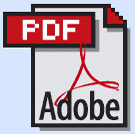Related Categories:
Summary:
Richard Price, who recently earned his Ph.D. in Philosophy at All Souls College, Oxford, launched Academia.edu on September 16, 2008. The website seeks to answer the question “Who’s researching what?” by taking a social networking approach to academic relationships. Academia.edu illustrates these relationships as a genealogy in which users are grouped by university, then department, then their position within their department. Users add content based on their research, including what papers they have written, their research interests, and their advisors.
Description:
Academia.edu uses a tree-like genealogical structure to organize academic relationships. Colleges and Universities are listed in a row along the top of the page – clicking the background and dragging it left or right allows a user to scroll through other universities. Using the search box in the middle of the page, a user finds their college or university and, if the school is not found, adds it to the list of universities and colleges. Once the user finds his or her university, s/he will see departments organized alphabetically on a tree that stems from his or her university. The user then locates his or her department or adds the department if it is not already part of the tree. (more…)

